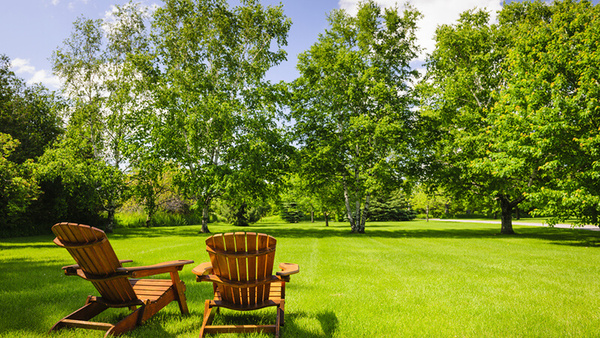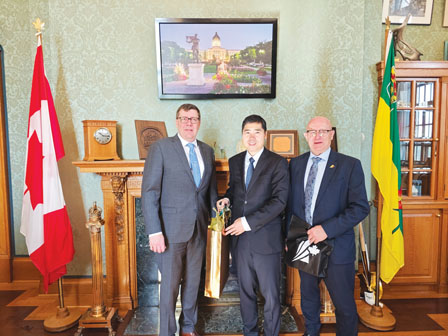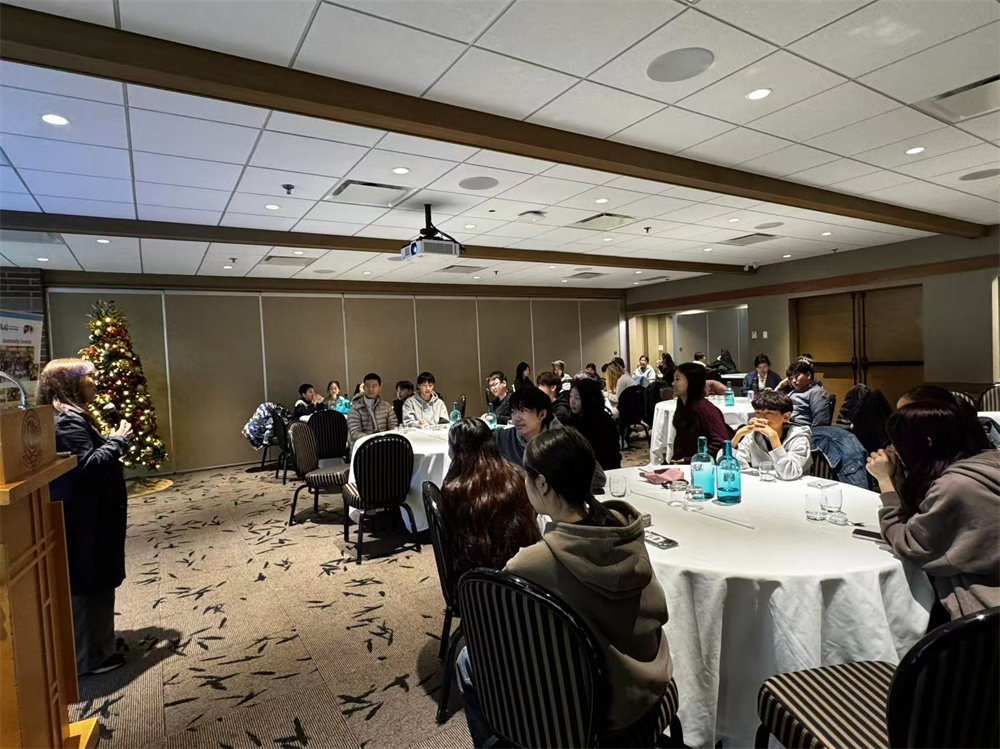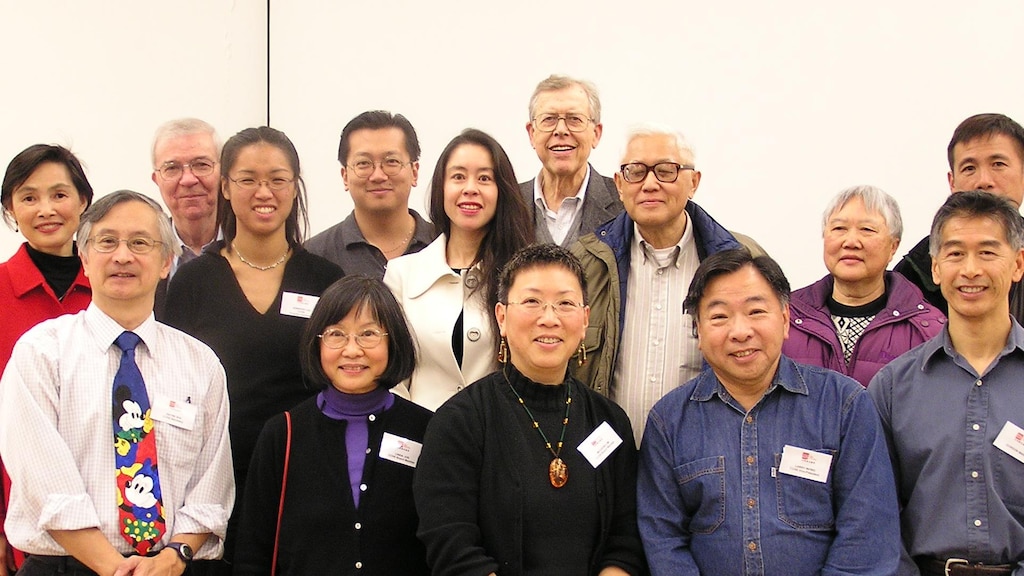
当我读到苏珊·马尔基奥里那篇描写她后院枫树的文章时,有一句话深深地触动了我:“后院里,孤零零地站着那棵枫树;屋子里,孤零零地坐着我。”
When I read Susan Marchiori’s story about her backyard maple tree, one line stayed with me: “My tree was all alone in the backyard, and I was all alone in the house.”
这句话让我立刻想起了已故的母亲。在离世前不久她曾告诉我说,她常常坐在我姐姐家的窗前,对着后院那棵光秃秃的树,一坐就是几个小时,心中感到无比孤独。为了让她走出那份寂寞,我几乎尝试了所有的说辞,但都未能起到应有的效果。但又怎么能呢?她所感到的孤寂对我来说太不陌生了!虽然我比她年轻三十岁,但我也常常陷入同样的境地,坐在自己家的窗前,凝视着后院的一棵树,心里涌上一种既平静又空聊寂寞之感。
It reminded me of my late mother. A few years before she passed away, she told me how lonely she felt sitting by the window of my sister’s house, staring for hours at the bare tree in the backyard. I tried everything I could to help her overcome that loneliness, but I failed — because her words echoed in me. Though I am thirty years younger, I too have found myself lost in that same quiet — sitting at my window, eyes fixed on a backyard tree, feeling a strange mixture of calm and emptiness.
有句中文说辞将这种感觉表达的淋漓尽致:”加拿大就是好山好水好无聊!”
There’s a Chinese saying that captures this emotion perfectly: “加拿大就是好山好水好无聊” — “Canada has beautiful mountains, clear waters, and endless boredom.”
这句话听起来像句笑话,但它却真真切切地反映了许多移民的心理。我们都来自一个人声鼎沸、热闹喧嚣的社区,邻里间经常互相串门,闲言碎语此起彼伏,锅碗瓢盆震的山响!那时的生活虽杂乱无章,但却充满能量和活力。
It sounds like a joke, but it reflects a truth that many immigrants feel. We come from places overflowing with human energy — from neighbourhoods where people drop by unannounced, where gossip flows freely, and where the daily music of 锅碗瓢盆 (pots and pans clanging) fills the air. Life was chaotic, but it was alive.
但在加拿大,生活的节奏渐渐从嘈杂与喧闹转为宁静与平和,从四合院里热闹嘈杂,渐渐变成了草坪、树木、花园与宠物的静谧气息。即使闲聊的话题已不再如以往:我不再和朋友、邻居们谈论那些张家长、李家短,像谁说了谁的什么坏话啊,谁的孩子又考上了什么顶尖大学等。如今,我们的话题围绕着怎样把狗训的更乖巧,怎样防止杂草侵占草坪,或者怎样让花园绽放得更美。
Here in Canada, life gradually turns from buzz and hum into peace and quiet — from the lively rhythm of shared courtyards to the gentle stillness of lawns, trees, gardens, and pets. Even the gossip has changed. I no longer talk with friends or neighbours about 张家长李家短 — the small dramas of who said what or whose child did better in school. Now, our conversations revolve around how to raise a good dog, how to stop weeds from taking over the lawn, or how to make the garden bloom just right.
这种转变,虽然细微,却标志着生活节奏的深刻变化。对于那些成长于人口稠密城市的人来说,这种转变会是一场艰巨的挑战,那种缺乏人类互动的寂静,那令人窒息的空虚,给许多移民,尤其老年移民,带来了无尽的孤独,让其深陷其中无法自拔。家乡那种亲密的人际联系的消失会带来无形的失落感,严重损害着身心健康。
然而,对于那些早已习惯在广袤原野与静谧自然中生活的人来说,无声的树木与花草,却是一幅别具韵味的人生风景。它能唤起人对往昔的回忆,或是一段童年的故事,或是一瞬浪漫的际遇,抑或是一场对人生旅程的回望,那何其丰盈的移民历程,纵使再浓密广袤的林荫,也无法将它完全覆盖。它也可能是一种当下的力量,一种与自然融为一体,被大地温柔地拥抱的舒适感受。耙落叶,或静坐树下,仿佛成了一场冥想,一个回归自然的时刻,一段抚慰人心的无声旋律,一篇让人重归宁静与平和的乐章。
This shift, subtle as it seems, marks a profound change in the rhythm of life. For those who grew up in densely populated cities, the transition can be hard — the silence can feel like a void. Many immigrants, especially seniors, struggle with this quietness that comes not from peace but from isolation. The loss of human connection can weigh heavily, affecting both spirit and health. Yet for those like Marchiori, who have long been used to vast open spaces surrounded by the peace and quiet of a wilderness landscape, the stillness of trees can stir memory — a childhood story here, a flash of romance there, or a reflection on a life journey so rich and full that no tree-lined canopy could ever contain it. It can also be a powerful moment of now — of oneness with nature, of being gently embraced by where we belong. Raking leaves or sitting beneath a tree becomes meditation, a calming melody, a rhythm that soothes rather than isolates.
也许这正是加拿大生活教给我们的,去寻找一种不是通过人际语言而建立的情感,一种能体验到静默无声的大自然所赋予的,抚平人类伤痛的神奇力量,去发现平凡中的价值与美:在四季更替的草坪里,在守候于家门口的宠物身上,在那些年复一年,静静与我们一同生长的树木之间找到心灵的抚慰。
Perhaps that’s what life in Canada teaches us — to find connection not only through human chatter but through the language of stillness, the healing power of nature. To discover value and beauty in the mundane: in lawns that mark the passing seasons, in pets that wait by the door, in trees that silently grow with us year after year.
我花了很多年才认识到,那些被我曾一度视为虚空和寂寞的时刻,也许正是一种丰富的人生体验。如今,当我站在自家后院,凝望着那棵草坪上投下阴影的枫树时,也还会常常会听到母亲的轻叹,而更多的是马尔基奥里当时的心境,在那棵孤立的枫树中享受着它静默的陪伴,并轻声对它道出一声“谢谢”。到头来,我与那棵树并无太大不同,同样扎根于大地,同样在冥冥之中,享受着自然万物之间相互的馈赠。
It took me years to see that what I once perceived as emptiness might also be a form of fullness. When I stand in my own backyard, gazing at the maple tree that shades our lawn, I sometimes hear the echo of my mother’s lonely sigh. But I also resonate with Marchiori, as she found a quiet kind of companionship from her stand-alone maple tree and whispered, “thank you.” In the end, the tree and I are not so different — both rooted in the same earth, both learning to love the quiet gifts that living things offer each other.
而让我最感欣慰的是今天的我终于能对窗外那棵树说声”谢谢”!
I am grateful that, finally, I, too, can whisper my own quiet “thank you” to the tree outside my window.









































